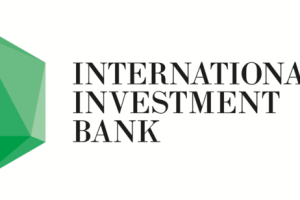Alătură-te comunității noastre!
Vezi cele mai recente știri & informații din piața de capital

Chinese GDP grew 4.5% y/y in 1Q23, above forecasts of 3.8% y/y and above the previous quarter’s 2.9% y/y.
The main reason for the faster-than-expected growth was much stronger retail sales growth, which accelerated to 10.6% YOY in March and 5.8% YOY in 1Q23 from 3.5% YOY in January-February.
Such rapid growth in retail sales has not been recorded since June 2021, when it rose 12.1% y/y. Retail sales growth was mainly driven by the restaurant industry.
In contrast, infrastructure investment growth slowed to 8.8% in 1Q23 from 9% in the first two months of the year, although infrastructure investment still grew faster than total fixed investment of 5.1% in 1Q23 (5.5% in February).
Even though growth slowed in March, infrastructure is expected to start growing faster in 2Q23, after much of the strong credit growth in March came from infrastructure projects.
Industrial production grew only 3.9% y/y in March and 3.0% in 1Q23, only slightly faster than the 2.4% growth in the previous quarter.
Industrial production growth will be quite modest as weaker external demand in the U.S. and Europe holds back growth. By category, most electronics production contracted in 1Q23.
Production of microcomputers, integrated circuits and smart devices fell 22.5%, 14.8% and 7% year-on-year, respectively, in 1Q23, reflecting the burden of US export bans.
Real estate investment gradually recovers
Real estate sector investment contracted 5.8% y/y in 1Q23, slightly worse than the 5.7% y/y decline in the first two months of 2023. This may be due to large housing inventories in the market, although developers who do not default on their bonds and loans should be able to obtain financing to continue their existing construction projects.
On the other hand, residential sales rose 7.1% y/y in 1Q23, compared to 3.5% in 4Q16. This is quite encouraging, as it suggests that some homebuyers are regaining confidence in developers.
If the homes already sold are digested by the market, developers should be able to generate fresh cash flow from home sales in 2024.
What are the implications of this GDP report?
With consumer spending up 10% year-over-year in March, there is no immediate need for fiscal stimulus to support consumers.
However, the government will likely maintain its infrastructure investment plan as an additional driver of growth, as the external market shoul deteriorate further in 2023.
In short, given this GDP report, there is no immediate need for the government to massively stimulate the economy.
Article based on a story from ING Bank as copyright owner









Vezi cele mai recente știri & informații din piața de capital